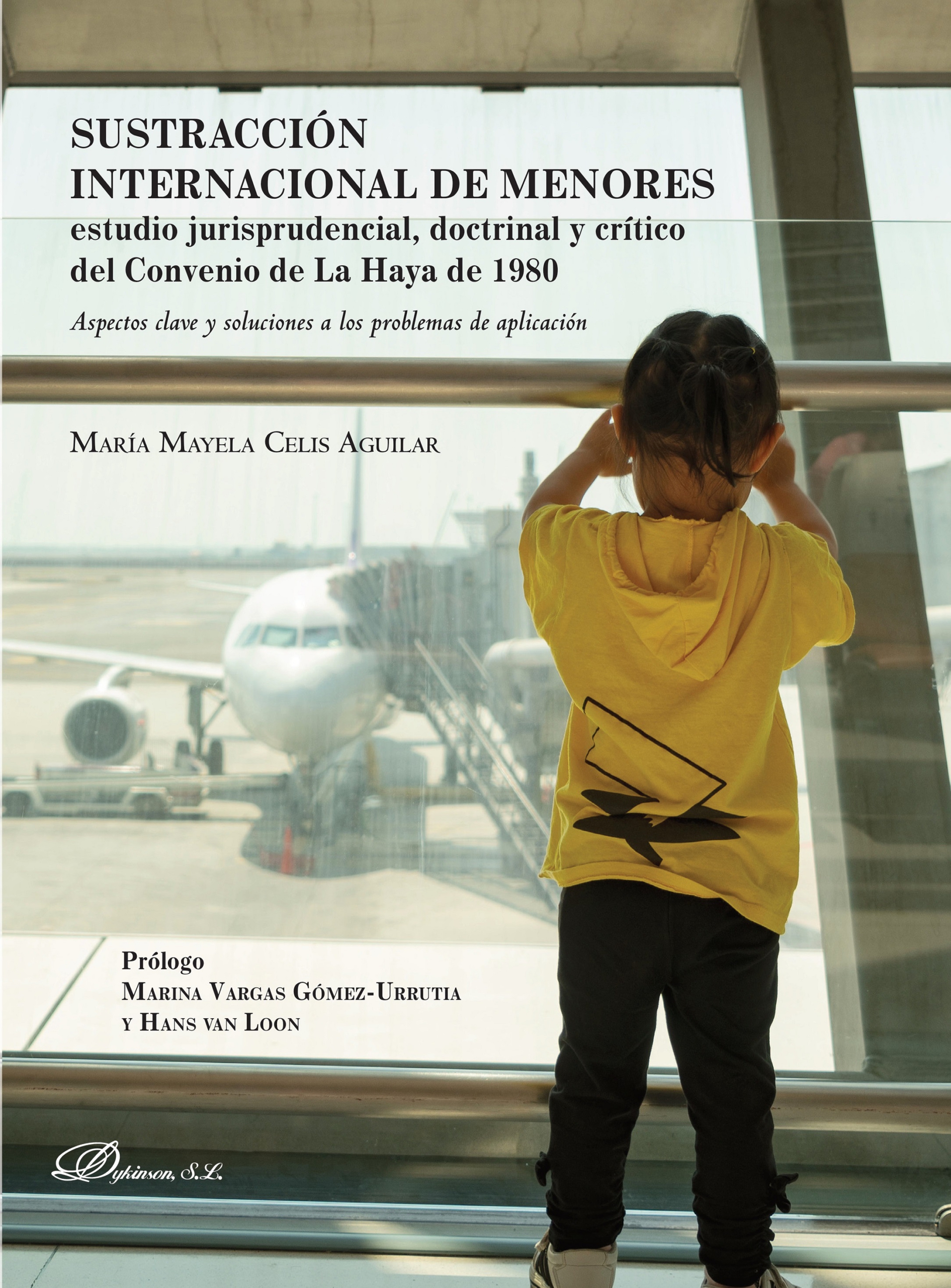Views
Nori Holdings: England & Wales High Court confirms ‘continuing validity of the decision in West Tankers’ under Brussels I Recast
Earlier this month, the English High Court rendered an interesting decision on the (un-)availability of anti-suit injunctions in protection of arbitration agreements under the Brussels I Recast Regulation (No 1215/2012). In Nori Holdings v Bank Otkritie [2018] EWHC 1343 (Comm), Males J critically discussed (and openly disagreed with) AG Wathelet’s Opinion on Case C-536/13 Gazprom and confirmed that such injunctions continue to not be available where they would restrain proceedings in another EU Member State.
Read more
Double Counting the Place of the Tort?
In common law Canada there is a clear separation between the question of a court having jurisdiction (jurisdiction simpliciter) and the question of a court choosing whether to exercise or stay its jurisdiction. One issue discussed in the Supreme Court of Canada’s recent decision in Haaretz.com v Goldhar (available here) is the extent of that separation. Does this separation mean that a particular fact cannot be used in both the analysis of jurisdiction and of forum non conveniens? On its face that seems wrong. A fact could play a role in two separate analyses, being relevant to each in different ways.
Justice Cote, with whom Justices Brown and Rowe agreed, held that “applicable law, as determined by the lex loci delicti principle, should be accorded little weight in the forum non conveniens analysis in cases where jurisdiction is established on the basis of the situs of the tort” (para 90). She indicated that this conclusion was mandated by the separation of jurisdiction and staying proceedings, which extends to each being “based on different factors”. So if the place of the tort has been used as the basis for assuming jurisdiction, the same factor (the place of the tort) should not play a role in analyzing the most appropriate forum when considering a stay. And since the applicable law is one of the factors considered in that analysis, if the applicable law is to be identified based on the connecting factor of the place of the tort, which is the rule in common law Canada, then the applicable law as a factor “should be accorded little weight”.
In separate concurring reasons, Justice Karakatsanis agreed that the applicable law “holds little weight here, where jurisdiction and applicable law are both established on the basis of where the tort was committed” (para 100). In contrast, the three dissenting judges rejected this reason for reducing the weight of the applicable law (para 208). The two other judges did not address this issue, so the tally was 4-3 for Justice Cote’s view.
As Vaughan Black has pointed out in discussions about the decision, the majority approach, taken to its logical conclusion, would mean that if jurisdiction is based on the defendant’s residence in the forum then the defendant’s residence is not a relevant factor in assessing which forum is more appropriate. That contradicts a great many decisions on forum non conveniens. Indeed, the court did not offer any supporting authorities in which the “double counting” of a fact was said to be inappropriate.
The majority approach has taken analytical separation too far. There is no good reason for excluding or under-weighing a fact relevant to the forum non conveniens analysis simply because that same fact was relevant at the jurisdiction stage. Admittedly the court in Club Resorts narrowed the range of facts that are relevant to jurisdiction in part to reduce overlap between the two questions. But that narrowing was of jurisdiction. Forum non conveniens remains a broad doctrine that should be based on a wide, open-end range of factors. The applicable law, however identified, has to be one of them.
The Most Appropriate Forum: Assessing the Applicable Law
Another issue in the recent Supreme Court of Canada decision in Haaretz.com v Goldhar (available here) involves the applicable law as a factor in the forum non conveniens analysis. It is clear that one of the factors in determining the most appropriate forum is the applicable law. This is because it is quite easy for the forum to apply its own law and rather more difficult for it to apply the law of another jurisdiction.
So if the defendant can show that the forum would apply not its own law but rather the law of another jurisdiction, that points to a stay of proceedings in favour of that other jurisdiction. In contrast, if the plaintiff can show that the forum would apply its own law, that points against a stay of proceedings. In Haaretz.com the plaintiff was able to show that the Ontario court would apply Ontario law, not Israeli law. So the applicable law factor favoured Ontario.
Not so, argued the defendant, because an Israeli court would apply Israeli law (see para 88). So as between the two jurisdictions neither was any more convenient than the other!
In the Supreme Court of Canada, four of the judges rejected the defendant’s rejoinder. The dissenting judges held that “[i]t is entirely appropriate, in our view, for courts to only look at the chosen forum in determining the applicable law. Requiring courts to assess the choice of law rules of a foreign jurisdiction may require extensive evidence, needlessly complicating the pre-trial motion stage of the proceedings” (para 207). In separate concurring reasons, Justice Karakatsanis agreed with the dissent on this point (para 100). So because Ontario would apply Ontario law, this factor favours proceedings in Ontario rather than proceedings in Israel.
In contrast, Justice Cote, with whom Justices Brown and Rowe agreed, stated that “I am concerned that disregarding the applicable law in the alternative forum is inconsistent with the comparative nature of the forum non conveniens analysis” (para 89). She cited in support an article by Brandon Kain, Elder C. Marques and Byron Shaw (2012). The other two judges did not comment on this issue, so the court split 4-3 against looking at the applicable law in the alternative forum.
There is force to the practical concern raised by the dissent, and even with the assistance of the parties in many cases the court will be unable to form a sufficiently strong view as to what law the foreign forum would apply. But conceptually it does seem that if it is established that the foreign forum will apply its own law, that should go to negate the benefits of the plaintiff’s chosen forum applying its own law. Neither is any more convenient where compared against the other.
Perhaps because of the novelty of the approach, Justice Cote’s application of it may have missed the mark. She held that “[a]s each forum would apply its own law, the applicable law factor cannot aid Haaretz in showing that it would be fairer and more efficient to proceed in the alternative forum” (para 88). But the true point flowing from establishing that Israel would apply Israeli law, it would seem, should be that the applicable law factor cannot aid Goldhar (the plaintiff) in showing that it would be fairer and more efficient to proceed in Ontario. If it cannot aid Haaretz.com that Israel would apply its own law, then how is the factor relevant and why is the court indicating a willingness to consider it? It surely could not aid Haaretz.com that Israel would apply some other law.
On a motion for a stay, if the court did know what law would be applied in both the chosen forum and the alternative forum, we would have four possible situations. On Justice Cote’s approach, if both forums would apply their own law, this is a neutral factor. Similarly, if both forums would apply law other than forum law, this is also a neutral factor. In the other two situations, the applicable law factor favours the forum that would be applying its own law. With the court splitting 4-3 against looking at the applicable law in the alternative forum, this is not the approach – but should it be?
News
Praxis des Internationalen Privat- und Verfahrensrechts (IPRax) 5/2023: Abstracts
The latest issue of the „Praxis des Internationalen Privat- und Verfahrensrechts“ (IPRax) features the following articles:
(These abstracts can also be found at the IPRax-website under the following link: https://www.iprax.de/en/contents/)
European Yearbook of International Economic Law 2024: Call for abstracts (and papers)
 The editors of the European Yearbook of International Economic Law (EYIEL) welcome abstracts from scholars and practitioners at all stages of their career for the EYIL 2024. This year’s Focus Section will concentrate on International and European Economic Law – Moving Towards Integration? In the General Section, the EYIEL will address Current Challenges, Developments and Events in European and International Economic Law.
The editors of the European Yearbook of International Economic Law (EYIEL) welcome abstracts from scholars and practitioners at all stages of their career for the EYIL 2024. This year’s Focus Section will concentrate on International and European Economic Law – Moving Towards Integration? In the General Section, the EYIEL will address Current Challenges, Developments and Events in European and International Economic Law.
Just released: International Child Abduction by Mayela Celis (Madrid: Dykinson, 2023 – in Spanish)

I am thrilled to announce that my book on international child abduction has been published this week (María Mayela Celis Aguilar (aka Mayela Celis), Madrid: Dykinson, 2023, 604 pp. – in Spanish). More information is available here.
I am most grateful to Prof. Marina Vargas Gómez-Urrutia and Hans van Loon for having written the Foreword of this book and for their support throughout this process. This book is dedicated to the memory of Adair Dyer, former Deputy Secretary General of the Hague Conference on Private International Law (HCCH), whom some of you may have known.
As stated in the publisher’s website (translation into English): “This monograph conducts a critical study of the Hague Convention of 25 October 1980 on the Civil Aspects of International Child Abduction by analysing both case law and doctrine. In particular, it examines key concepts of the Convention, such as habitual residence and rights of custody, as well as other problems that arise more frequently in its application. But not before carrying out a detailed study of the phenomenon of international child abduction from a multidisciplinary and human rights approach.


